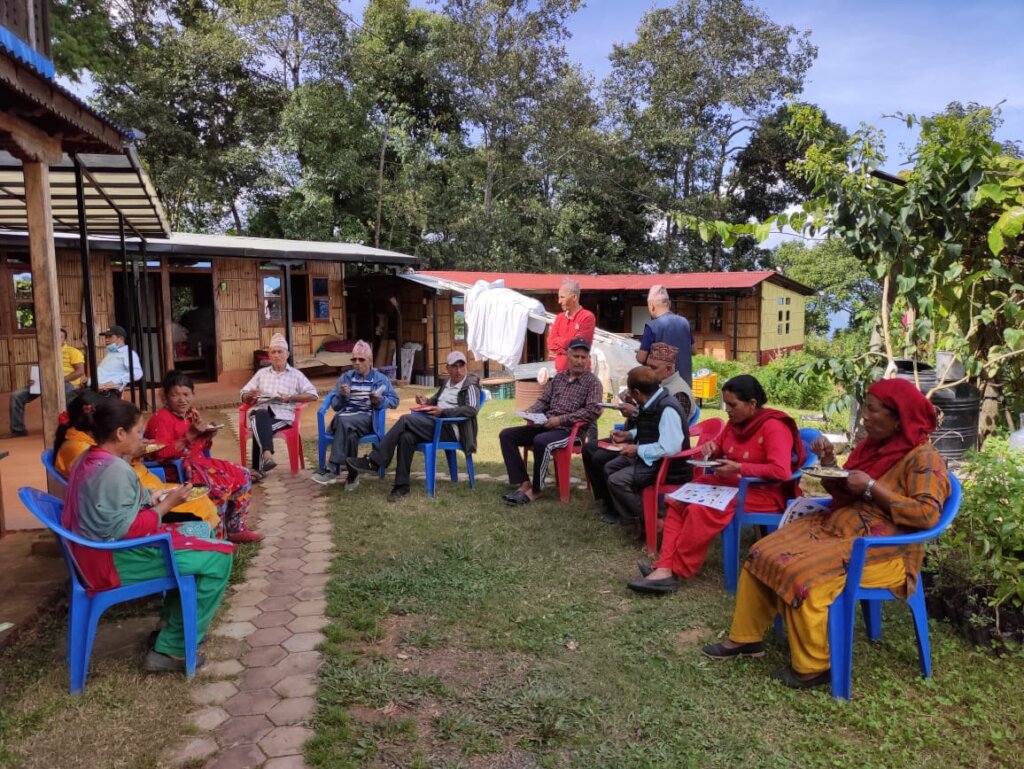By Declan Alcock | Director EWB-Ireland
In our last update in July we had completed testing of the prototypes, and commenced fabrication of the remaining 29 units incorporating improvements identified in the tests.
We are happy to report the initial batch of 30 units have now been fabricated and dispatched to Shree Krishna at Sanskrirti Farms and Research Centre and the first of a series of demonstrations and workshops with local farmers took place in September. This is a very important milestone for the project!
Apart from skills training for the farmers an important aspect of these workshops is to gather feedback from the farmers and learn about their traditional farming methods and processes. Photos from the first workshop can be seen below.
Shree Krishna was very impressed by the enthusiasm shown by all participants. Based on feedback further improvements have been identified at this early stage such as adding handles to the inner drum for ease of assemble and a small door on the kiln would be useful for easier access. Shree shared that the farmers make hot ash (using mustard cakes) and all have buffaloes to access manure. They also all have access to woodland to obtain biomass for burning. We have also been able to identify particular shrubs including Ainselu, a wild raspberry, which the farmers clear and burn before planting crops as they have no use. There is a potential to use these as fuel for the kiln which we will investigate further.
After a project review with Shree Krishna last week the next phase is a schedule of workshops to take place at key milestones during the planting, growing and harvesting seasons to collect data and feedback which will be invaluable in progressing the project.
We also discussed research opportunities between Irish and Nepalese Universities to analyse jointly the kiln emissions and efficiency. It was decided a hand held thermometer is useful for temperature measurement to test the efficiency of the burn as 700 degrees Celsius and over is the ideal temperature. This is something we will try to source and send out to the team in Nepal.
We are looking forward to moving to this important next phase of our pilot project and learning from the experiences of the local farming community! We look forward to sharing our next project update with you. Until then, our thanks for helping us get to this stage!
Project reports on GlobalGiving are posted directly to globalgiving.org by Project Leaders as they are completed, generally every 3-4 months. To protect the integrity of these documents, GlobalGiving does not alter them; therefore you may find some language or formatting issues.
If you donate to this project or have donated to this project, you can receive an email when this project posts a report. You can also subscribe for reports without donating.
Support this important cause by creating a personalized fundraising page.
Start a Fundraiser






